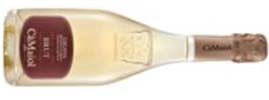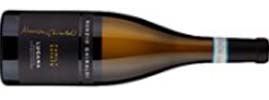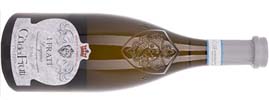Is this one of the worlds best value white wines? Exploring Lugana, Italy with Chris Burr
By Master of Wine, Christopher Burr
06/05/2022

One of the most wonderful things about Italian wines is the variety, from north to south, coasts to hills, volcanoes to limestone outcrops to river clays, and some 3-400 different authorised grape varietals!
I have been involved with Italian wines for over forty years, first as a shipper of Chianti, Soave, and Valpolicella in the 1970's and 80's, then more recent associations with Prosecco and super Tuscans. And what is great about the wine industry, is that one never knows it all, - there is always something new to learn and discover.
It was a joy last week to visit the region of Lugana, an historic and ancient vineyard area just south of Lake Garda, with a small part in the Veneto region and the major part in Lombardy near Verona. But to avoid confusion, it is best to think of it as a wine from Garda, where all the soil and climate the influences on the wine come from.
For many years light fresh white wines were produced in this small region, then in 1967 Lugana was the first wine growing region in the area to be recognised under the laws controlling origin, DOC. By 1988 there were only 394 hectares planted with vines. But as the wines have gradually been recognised, investment has been extensive, with now some 2500 Hectares in production, and some very impressive modern wineries.
The most exciting thing about the wines from Lugana is the indigenous grape, the Turbiana. I have still not gotten to the exact parentage of this most interesting grape, other than it is probably a local clone of the Trebbiano, or even the Verdicchio, certainly it has the crisp acidity and stone fruit and sometimes citrusy grapefruit peel characters found in these grapes. But the Turbiana goes way beyond what one might expect in complexity and ageing potential and for me it is a wonderful discovery.
Turbiana, the way it is grown in Lugana has depths of flavour, and expresses the soils it is grown upon in the most fascinating way. On the white clay soils near the lake, low yields and old vines with deep roots produce a mid-palate roundness of fruit and fresh gastronomic acidity. It has a very special and unique finish of minerality and saltiness, which lasts and lasts.
The most exciting thing about the wines from Lugana is the indigenous grape, the Turbiana.
The effects of the unique micro climate, coolness and moisture from the lake, cool breezes from the Alps, good precipitation but they can also have very dry periods which necessitates drip irrigation for the new plantings, all has a part to play on yields, ripening periods, fruit character and acidity.
This combination of flavours and textures is special, and works beautifully as an aperitif, with chicken, grilled fish, and especially cheeses.
The other main soil types are morainic hills, carried down by Ice Age glacial activity from the Alps, which form the scenic northerly backdrop to the region. These soils are a mix of volcanic, limestones, sands, gravels and clays. Often the wines grown here are lighter than on the clay, but can have some elegance and mineral expression which makes an interesting difference. Often wine producers have plots on several different soil types which makes for some fascinating blends.
I was most interested to hear from various winemakers, that some age a portion of their production in oak, very little in new oak. This does add a further dimension. But others prefer to use no oak, have given it up and now prefer to look for the purity of flavour and complexity from the soil and this extraordinary grape.
It also used to be common to add a permitted up to 10% of other white grapes. But again, the best Lugana producers feel that the purity and complexity of the pure 100% Turbiano creates the most interesting and rewarding expression.
The next extraordinary feature of these Lugana wines is the way they develop with some age. The minerality and saltiness combined with fruitiness which becomes richer developing from after the first year. Although we tasted a lot of the latest bottled 2021, even after half an hour in the glass the complexity starts to develop, however it is best is to drink these wines after at least a year in bottle.
It also used to be common to add a permitted up to 10% of other white grapes. But again, the best Lugana producers feel that the purity and complexity of the pure 100% Turbiano creates the most interesting and rewarding expression.
We also tasted wines from 2007- 2013, and these were still fresh and young, but with wonderful complexity and honeyed richness, this wine has potential for a very long and increasingly complex life.
So, with this fascinating grape, what else are they doing?
Whilst 98% of Lugana is the basic still white wine, in recent years Superiore, (one year ageing), and Riserva denominations have been designated, and some 20 of the 70 or so producers now have a Riserva, with 24 months ageing of which six months in bottle, as their flagship wine. These Riserva wines, with the benefit of age before release, are often harvested a little later and therefore have up to 13% alcohol.
Some producers have also made wines with semi dried grapes, and some a sweeter late harvest wine, but these are pretty rare.
Most of the top producers are now producing good sparkling wines, and they still retain the complexity and profile of the Turbiana grape, and also benefit from bottle age. These Lugana Spumante are made in relatively small quantities either with the Martinotti Tank (cuve close or Charmat) method, or the secondary fermentation in bottle Metodo Classico (Method Champenois), and are well worth searching out, fine sparkling wines.
Two very good Lugana Spumante DOCs available in the UK are Tenuto Roveglia from the on-line store Vinello for £11.20 per bottle. Also, the Metodo Classico Lugana Spumante from producer Ca' Maiol, available from on-line retailer Tannico for £22.61.

I really hope more merchants will stock this lovely white wine in future, in my view the best compares in quality and interest with good village white Burgundy and we know the price of that! So, for anything between £7.50 and £25, Lugana must be one of the best value and most interesting white wines around.
Try the delicious, refined and complex Corte Sermana Laguna 2019, stocked by the superb Edinburgh wine merchant, Raeburn Fine wines.
Majestic Wines also have Nunzio Ghiraldi Lugana DOC 2020 for £12.99 for a mixed six bottles.

Amazon have Ca' dei Frati, I Frati. Laguna DOC at £17.57.

I see Aldi who had Castellone Lugana 2020 have sold out! But Lidl have Giulio Pasotti Lugana DOC 2019 for £7.49.
All worth hunting down, you won't be disappointed.